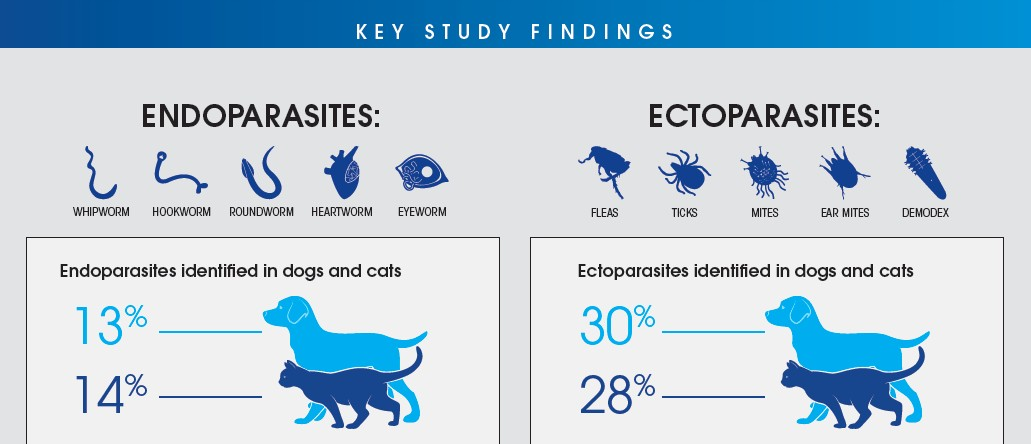Parasites: What your pets can’t tell you!
An increasing number of people in the South East Asia region choose to bring pets into their lives. However, pet ownership also means having a better understanding of preventive approaches to keep animals free from diseases. Therefore, our colleagues in the region conducted a comprehensive epidemiological study with Principal Investigator Vito Colella.
Time and again, we have discovered that there is a strong connection between humans and animals, and their lives are interconnected in more ways than one. When it comes to the health of our pets, there is a never-ending concern to protect them from parasitic attacks. While an infestation brings discomfort to pets, some of the parasites might even be transmissible to humans – also known as zoonotic diseases. Pet-parasites can be a real struggle for all of us!
The first step towards combatting this issue is to have the right knowledge and awareness about parasite infestation in pets. In South East Asia, there is limited scientific information around parasites that affect cats and dogs. With the increasing number of people in the region choosing to be pet owners, there is clearly a need to establish preventive approaches and treatment options to combat parasitic challenges. That is why Boehringer Ingelheim Animal Health in the region conducted a comprehensive epidemiological study with Principal Investigator Vito Colella over a period of one year by observing more than 2,000 pet dogs and cats.
Key findings
Ectoparasites live on the surface of the pet, whereas endoparasites live within the pet’s body. Both are generally harmful and may cause disease to the animal.
After close observation of around 2,381 pet dogs and pets, the analyses indicated a surprising number of undetected parasites that live on dogs and cats at home, dismissing the misconceptions that pets at home are not at risk of parasite invasion compared to pets that go out. Moreover, veterinary examinations of the tests showed that over 1 in 4 pet cats and almost 1 in 3 pet dogs suffer from hosting ectoparasites such as fleas, ticks or mites that dwell on their body. “Pets are not auto-immune to parasitic infestation that can cause them irritation and discomfort which may lead to bigger issues if left undiagnosed or untreated. Having a thorough overview into the types of parasites provides insights on the management and encourages the pet owners to have the right conversation with the vet,” remarked Prof. Frederic Beugnet, Boehringer Ingelheim Animal Health, Head of Global Technical Services, Pet Parasiticides.
Pursuing this further, it was discovered that over 1 in 10 pets are negatively affected by parasitic worms. Based on the findings, Do Yew Tan, Technical Manager at Boehringer Ingelheim Animal Health, South East Asia & South Korea region commented, “Studies like these emphasize the importance in preventing and controlling parasite infestation. Using the findings from the study, we want to keep moving forward and raise more awareness about pet safety in the region. At Boehringer Ingelheim, we feel it is our responsibility to partner with our customers and pet-owners to provide in-depth understanding to tackle the issue which concerns us all.”
Shedding more light on the topic, Dr. Armin Wiesler, Regional Head of Boehringer Ingelheim Animal Health, South East Asia and South Korea region, said: “At Boehringer Ingelheim, safety and well-being of animals and humans are at the core of what we do. When developing prevention strategies towards zoonotic diseases, limited data can hinder the process. We can’t fight what we don’t have complete visibility on. This study gives us the right insights that enable innovative solutions to fight pet parasite problems in the region.”
Post time: Jul-21-2023


